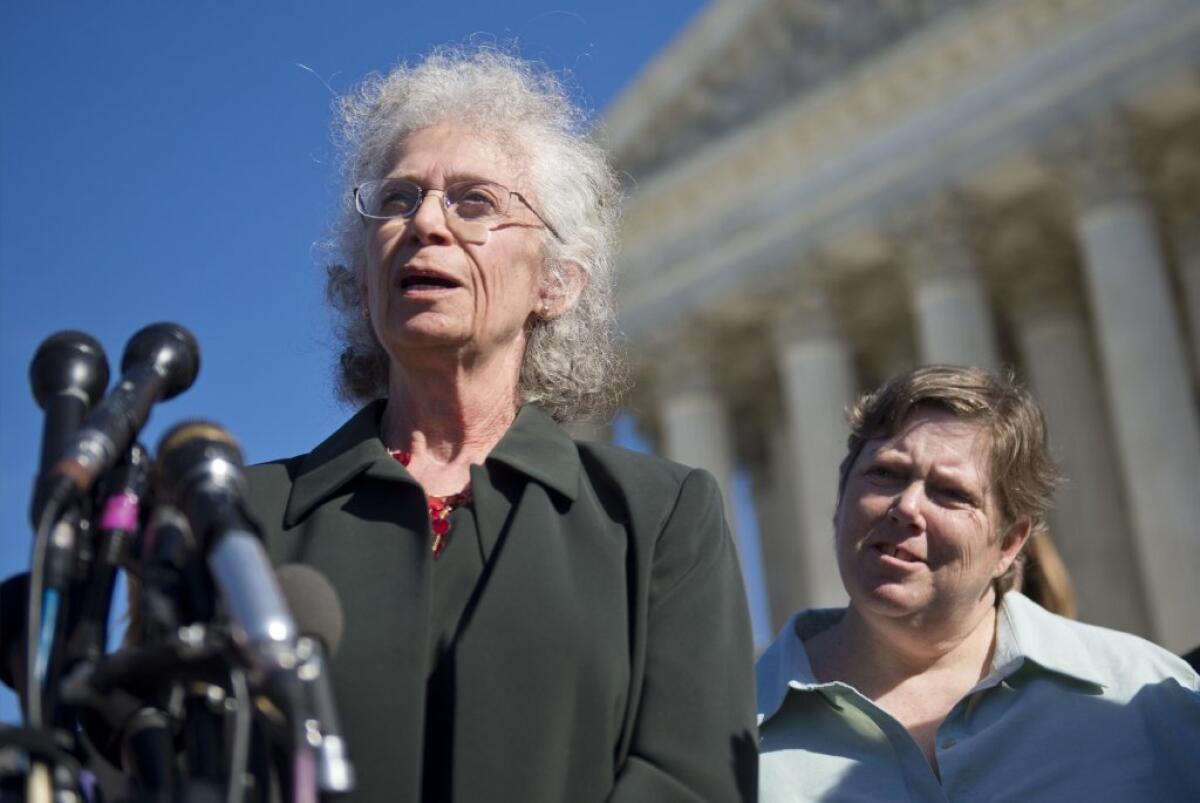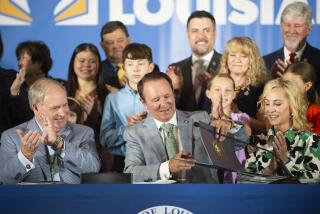A prayer paradox at the Supreme Court

Constitutional issues involving the separation of church and state are full of paradoxes, and Wednesday’s argument in the Supreme Court over prayers at town meetings illuminated one of them.
The justices were reviewing a federal appeals court’s ruling that the town of Greece, N.Y., violated the establishment clause of the 1st Amendment by beginning most of its monthly meetings with explicitly Christian prayers, some of them very detailed theologically.
A lawyer for two citizens who opposed the prayer — one a Jew, one an atheist — asked the court to rule that prayers at government meetings must be nonsectarian. That is more than the U.S. 2nd Circuit Court of Appeals had required; it said that an occasional sectarian prayer would be permissible but that Greece had so stacked the deck in favor of explicitly Christian prayers that “an objective, reasonable person” would believe that the town endorsed Christianity.
Douglas Laycock, the lawyer for the plaintiffs in Greece, told the court: “We can treat the great majority of the people equally with the tradition of prayer to the Almighty, the governor of the universe, the creator of the world.” But Laycock acknowledged that the test he was proposing would leave some people out, atheists obviously as well as “true polytheists who don’t understand their gods as manifestations of the one god.”
(Justice Antonin Scalia, who recently startled an interviewer by saying he believed in the devil, asked Laycock if his test would also exclude Satan-worshipers. Laycock said they were “probably out” but might be covered because they believe “the devil is the Almighty.”)
The paradox here is that the more encompassing a prayer is in terms of the number of faiths that can give assent to it, the more the citizen who can’t say the prayer in good conscience feels like an outsider.
If a town meeting begins with a hyper-sectarian prayer (say a Catholic prayer to the Virgin Mary), a Protestant who objects will at least know that lots of others in the room (Protestants, Jews, Hindus, Buddhists, Muslims) feel the same. But a prayer to “the Almighty” or “Heavenly Father,” precisely because it’s acceptable to Protestants, Catholics, Jews and perhaps Muslims, makes the marginalization of the lonely atheist or Hindu even worse. The more people who qualify as “us,” the worse it is for “them.”
The only way to remedy that marginalization is to do away with prayers at government meetings altogether, a solution the court is unlikely to insist on. But town fathers (and mothers) can decide on their own to begin their proceedings not with a prayer but with a moment of silence, during which those in attendance can pray to any god or none. That, by the way, is what Greece did before 1999. It shouldn’t have messed with success.
ALSO:
The grim economics of food stamps
LAX shooting: Have we become numb to mass shootings?
More to Read
Sign up for Essential California
The most important California stories and recommendations in your inbox every morning.
You may occasionally receive promotional content from the Los Angeles Times.











